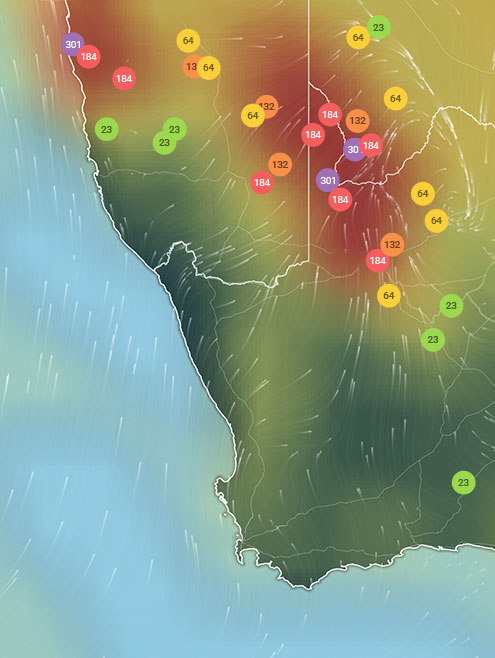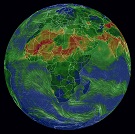Get a monitor and contributor to air quality data in your city.
4.1K people follow this city






AIR QUALITY DATA CONTRIBUTORS
Find out more about contributors and data sources| Index | Low | ||
| Tree pollen | Low | ||
| Grass pollen | None | ||
| Weed pollen | None |
| Weather | Broken clouds |
| Temperature | 53.6°F |
| Humidity | 96% |
| Wind | 3.1 mp/h |
| Pressure | 29.9 Hg |
| # | city | US AQI |
|---|---|---|
| 1 |  Zenica, Federation of B&H Zenica, Federation of B&H | 63 |
| 2 |  Banja Luka, Srpska Banja Luka, Srpska | 52 |
| 3 |  Sarajevo, Federation of B&H Sarajevo, Federation of B&H | 47 |
(local time)
SEE WORLD AQI RANKING
| # | station | US AQI |
|---|---|---|
| 1 | Zenica - Centar | 66 |
| 2 | Zenica - Tetovo | 60 |
| 3 | Zenica - Brist | 20 |
| 4 | Zenica - Vranduk | 20 |
(local time)
SEE WORLD AQI RANKINGUS AQI
63
live AQI index
Moderate
| Air pollution level | Air quality index | Main pollutant |
|---|---|---|
| Moderate | 63 US AQI | PM2.5 |
| Pollutants | Concentration | |
|---|---|---|
| PM2.5 | 15.5µg/m³ | |
| PM10 | 21µg/m³ | |
| O3 | 43µg/m³ | |
| NO2 | 6.5µg/m³ | |
| SO2 | 29µg/m³ | |
| CO | 1261µg/m³ | |
PM2.5
x3.1
PM2.5 concentration in Zenica is currently 3.1 times the WHO annual air quality guideline value
| Sensitive groups should reduce outdoor exercise | |
| Close your windows to avoid dirty outdoor air GET A MONITOR | |
| Sensitive groups should wear a mask outdoors GET A MASK | |
| Sensitive groups should run an air purifier GET AN AIR PURIFIER |
| Day | Pollution level | Weather | Temperature | Wind |
|---|---|---|---|---|
| Monday, May 13 | Moderate 60 AQI US | 71.6° 50° | ||
| Tuesday, May 14 | Moderate 57 AQI US | 55.4° 51.8° | ||
| Today | Moderate 63 AQI US | |||
| Thursday, May 16 | Moderate 62 AQI US | 68° 51.8° | ||
| Friday, May 17 | Moderate 59 AQI US | 73.4° 51.8° | ||
| Saturday, May 18 | Moderate 55 AQI US | 73.4° 55.4° | ||
| Sunday, May 19 | Good 49 AQI US | 78.8° 53.6° | ||
| Monday, May 20 | Moderate 72 AQI US | 80.6° 55.4° | ||
| Tuesday, May 21 | Moderate 70 AQI US | 78.8° 57.2° | ||
| Wednesday, May 22 | Moderate 76 AQI US | 73.4° 59° | ||
| Thursday, May 23 | Moderate 66 AQI US | 75.2° 55.4° |
Interested in hourly forecast? Get the app
Zenica is a city in Bosnia and Herzegovina. It is located in the Bosna river valley, about 70 kilometres north of Sarajevo. According to a census conducted in 2013, the estimated population was approximately 110,000 citizens.
Towards the middle of 2021, Zenica was enjoying a period of “Good” quality air with a US AQI reading of just 33. This United States Air Quality Index number is an internationally used set of metrics supported by the World Health Organisation (WHO) and is used to compare different cities throughout the world using comparable standards. It is calculated by using the levels of the six most commonly found pollutants. If records are not available for all six pollutants, then the figure is calculated by using what figures there are.
The concentration levels of the pollutants were as follows: PM2.5 - 8 µg/m³, PM10 - 10 µg/m³, ozone (O3) - 66 µg/m³, nitrogen dioxide (NO2) - 12 µg/m³, sulphur dioxide (SO2) - 44 µg/m³ and carbon dioxide (CO) - 519 µg/m³. Although no amount of polluted air is safe, with a level as relatively low as this, windows and doors can be left open to allow the ingress of fresh air into the rooms. All forms of outdoor pursuits can safely be followed and enjoyed.
Air quality is very volatile and can easily be affected by many things, such as wind speed and direction, the strength and length of sunlight hours and the seasons of the year can all change the air very quickly.
Looking at the figures released by the Swiss company IQAir.com for 2020, it can be seen that for 10 months of the year, Zenica enjoyed “Moderate” quality air with figures between 12.1 and 35.4 µg/m³. This lasted from March until the end of December. During February, the quality was worse with a reading of 35.7 µg/m³ which put Zeneca into the “Unhealthy for sensitive groups” classification and January was even worse as it was classed as “Unhealthy” with a figure of 100.2 µg/m³.
In 2019 a figure of 34.8 µg/m³ was recorded followed by a figure of 27.7 µg/m³ the following year.
However, this may not be a truly accurate reading because of the restrictions imposed due to the COVID-19 pandemic. Many vehicles were temporarily unused as the drivers were furloughed and allowed to work from home where possible, and not required to commute to and from work. There were also many factories and other non-essential production units which were temporarily closed in an attempt to prevent the spread of the virus.
The main source of air pollution in Zenica is undoubtedly from the vast steelworks. It is claimed that it operates without the necessary permits and has failed to make the improvements which were promised almost 20 years ago.
In the city centre there is a large electronic hoarding that measures and displays the level of sulphur dioxide at any time. In 2015, levels of this toxic gas – which comes from burning coal – exceeded EU safe limits 166 times.
The main problem is that the exhaust gases are not treated before being emitted into the environment. The huge basic oxygen furnace still operates without secondary de-dusting, which is in contravention of Bosnia’s Environmental Protection Act. There has been no desulphurisation of the coke oven.
Another source of air pollution comes from the large amount of poor quality coal that is burned during the colder months as a source of heat. Estimates suggest Zenica households use around 50,000 tonnes of coal each year, the steelworks consumed about 16 times that – 815,098 tonnes – in 2014 alone.
Bosnia loses a staggering 21.5 per cent of its GDP each year due to the air pollution.
It is hoped that the steelworks will install scrubbers to their chimneys in order to reduce the amount of dangerous emissions but they argue that they are within the law as required by the state. In documents submitted to the Bosnian Federal Ministry in 2008, the steel giant promised to undertake a series of expensive measures to reduce emissions. This work was to be completed by the end of 2011. More than five years after that deadline, many of these improvements have not been finished or, in some cases, even started.
With the backing of the United Nations Development Programme, the polluted nation is attempting to turn around and introduce new environmentally sustainable rules for the general public. Switching to the gas grid for municipal heating, increasing the energy efficiency of residential buildings and promoting bicycle use are to name but a few.
In August 2020, the UNDP planned an initiative to plant 10,000 trees within the municipality. Planting trees will not just help in combating the problem of air pollution but also prevent landslides, floods and boost agriculture.
Air pollution is a major problem in Bosnia-Herzegovina. The country has the world’s fifth highest incidence of death by air pollution. Rates of lung diseases are among the highest in the world.
Having spoken to local residents, they claim that at least one person in every household has succumbed to some form of cancer.
Exposure to high levels of air pollution can cause a variety of adverse health effects. It increases the risk of respiratory infections, heart disease and lung cancer. Both short and long term exposure to air pollutants have been associated with health impacts. More severe impacts affect people who have pre-existing conditions. Children under the age of 14 years, the elderly and poor people are more susceptible. The most health-harmful pollutants – closely associated with excessive premature mortality – are fine PM2.5 particles that penetrate deep into lung passageways.
Particulate matter is the term for particles found in the air, including dust, dirt, soot, smoke, and liquid droplets. Large concentrations of particulate matter are typically emitted by sources such as diesel vehicles and coal-fired power plants. Particles less than 10 micrometres in diameter (PM10) pose a health concern because they can be inhaled into and accumulate in the respiratory system. Particles less than 2.5 micrometres in diameter (PM2.5) are referred to as "fine" particles and pose the greatest health risks. Because of their small size, fine particles can lodge deeply into the lungs.
1Contributor
Government Contributor
1 Data source